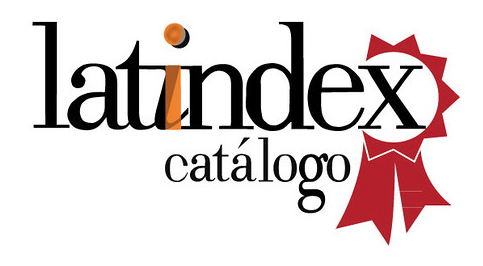Strategies and challenges for the promotion of a responsibility mindset in technical career students during internships
DOI: https://doi.org/10.20868/abe.2021.3.4735
Texto completo:
PDF (English)Resumen
Referencias
UNFCCC, «Conference of the Parties (COP) UNFCCC». https://unfccc.int/process/bodies/supreme-bodies/conference-of-the-parties-cop (accessed Mar. 20, 2021).
European Commission, «A European Green Deal», European Commission - European Commission. https://ec.europa.eu/info/strategy/priorities-2019-2024/european-green-deal_en (accessed Mar. 20, 2021).
P. Glavič, Z. N. Pintarič, and M. Bogataj, «Process Design and Sustainable Development—A European Perspective», Processes, vol. 9, n. 1, Art. n. 1, Jan. 2021, doi: 10.3390/pr9010148.
M. Lieder and A. Rashid, «Towards circular economy implementation: a comprehensive review in context of manufacturing industry», J. Clean. Prod., vol. 115, pp. 36-51, Mar. 2016, doi: 10.1016/j.jclepro.2015.12.042.
J. M. Smith, C. J. McClelland, and N. M. Smith, «Petroleum Engineering Students’ Views of Corporate Social Responsibility», presented at 2016 ASEE Annual Conference & Exposition, jun. 2016, Accessed: Mar. 20, 2021. [Online]. Available at: https://peer.asee.org/petroleum-engineering-students-views-of-corporate-social-responsibility.
J. D. Sachs, G. Schmidt-Traub, M. Mazzucato, D. Messner, N. Nakicenovic, and J. Rockström, «Six Transformations to achieve the
Sustainable Development Goals», Nat. Sustain., vol. 2, n. 9, Art. n. 9, Sep. 2019, doi: 10.1038/s41893-019-0352-9.
P. Cane, Responsibility in Law and Morality. Oxford: Hart Publishing, 2002.
R. A. Duff, «Responsibility», in Routledge Encyclopedia of Philosophy, 1st ed., London: Routledge, 2016.
D. Birnbacher, «Philosophical Foundations of Responsibility», in Responsibility: The Many Faces of a Social Phenomenon, A. E. Auhagen and H. W. Bierhoff, Eds. London: Routledge, 2001, pp. 9-22.
S. Baumgärtner, T. Petersen, and J. Schiller, «The Concept of Responsibility: Norms, Actions and Their Consequences», Social Science Research Network, Rochester, NY, SSRN Scholarly Paper ID 3157667, Apr. 2018. doi: 10.2139/ssrn.3157667.
D. Robb, «Moral Responsibility and the Principle of Alternative Possibilities», in The Stanford Encyclopedia of Philosophy, Fall 2020., E. N. Zalta, Ed. Metaphysics Research Lab, Stanford University, 2020.
R. McKeon, «The Development and the Significance of the Concept of Responsibility», Rev. Int. Philos., vol. 11, n. 39 (1), pp. 3-32, 1957.
R. E. Freeman, Strategic management : a stakeholder approach. Boston : Pitman, 1984.
Business Roundtable, «Statement on the Purpose of a Corporation», Business Roundtable - Opportunity Agenda. https://opportunity.businessroundtable.org/ourcommitment (accessed Mar. 19, 2021).
R. Von Schomberg, «Prospects for Technology Assessment in a Framework of Responsible Research and Innovation», in Technikfolgen abschätzen lehren: Bildungspotenziale transdisziplinärer Methoden, M. Dusseldorp and R. Beecroft, Eds. VS Verlag für Sozialwissenschaften, 2011.
H. R. Bowen, Social responsibilities of the businessman. New York: Harper, 1953.
W. C. Frederick, «The Growing Concern over Business Responsibility»:, Calif. Manage. Rev., jul. 1960, doi: 10.2307/41165405.
A. B. Carroll, «A Three-Dimensional Conceptual Model of Corporate Performance», Acad. Manage. Rev., vol. 4, n. 4, pp. 497-505, 1979, doi: 10.2307/257850.
UNDESA, «SDGs. Sustainable Development Knowledge Platform». https://sustainabledevelopment.un.org/sdgs (accessed Apr. 27, 2020).
European Union (EU), «Council Recommendation of 22 May 2018 on key competences for lifelong learning», Off. J. Eur. Union, may 2018, [Online]. Available at: https://eur-lex.europa.eu/legal-content/EN/TXT/?uri=uriserv%3AOJ.C_.2018.189.01.0001.01.ENG&toc=OJ%3AC%3A2018%3A189%3ATOC.
Enlaces refback
- No hay ningún enlace refback.
Copyright (c) 2022 Autor / BY-NC-ND

Este obra está bajo una licencia de Creative Commons Reconocimiento-NoComercial-SinObraDerivada 4.0 Internacional.













